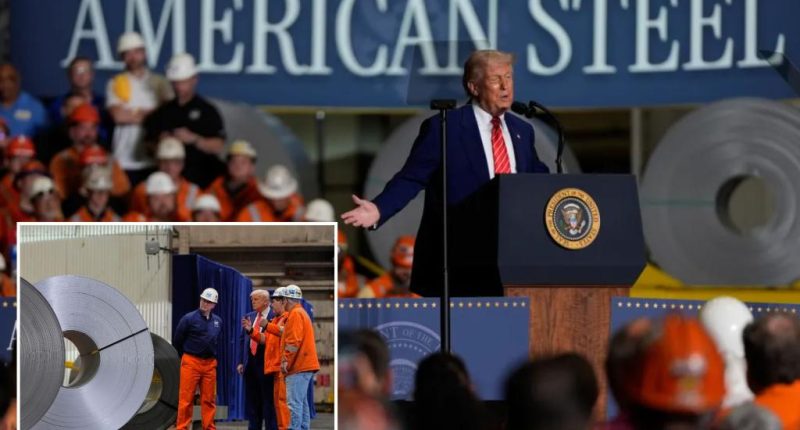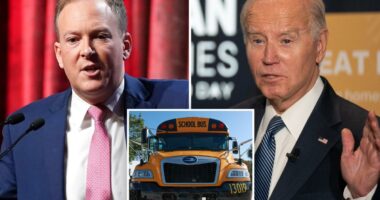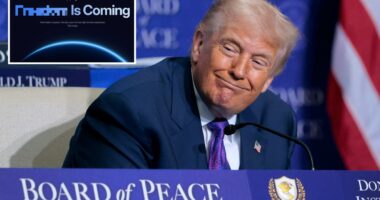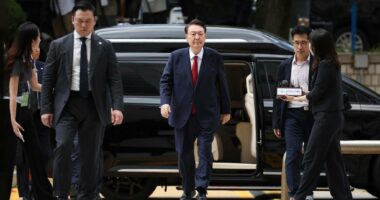Share this @internewscast.com
On Friday, President Donald Trump signed an executive order facilitating a Nippon Steel investment in U.S. Steel, contingent upon the Japanese company adhering to a “national security agreement” outlined by the federal government.
Trump’s order didn’t detail the terms of the national security agreement.
In a joint statement, U.S. Steel and Nippon Steel announced that the agreement involves around $11 billion in new investments by 2028 and includes granting the U.S. government a “golden share” — effectively providing veto power to safeguard the nation’s security interests.
“We thank President Trump and his Administration for their bold leadership and strong support for our historic partnership,” the two companies said.
“This collaboration will result in a significant investment that will benefit our communities and families for many years. We anticipate turning our promises into action, ensuring the resurgence of American steelmaking and manufacturing.”

The companies have completed a U.S. Department of Justice review and received all necessary regulatory approvals, the statement said.
“The partnership is expected to be finalized promptly,” the statement said.
The companies offered few details on how the golden share would work and what investments would be made.
Trump said Thursday that he would as president have “total control” of what U.S. Steel did as part of the investment.
Trump said then that the deal would preserve “51% ownership by Americans.”
The Japan-based steelmaker had been offering nearly $15 billion to purchase the Pittsburgh-based U.S. Steel in a merger that had been delayed on national security concerns starting during Joe Biden’s presidency.
Trump opposed the purchase while campaigning for the White House, yet he expressed optimism in working out an arrangement once in office.
“We have a golden share, which I control,” said Trump, although it was unclear what he meant by suggesting that the federal government would determine what U.S. Steel does as a company.
Trump added that he was “a little concerned” about what presidents other than him would do with their golden share, “but that gives you total control.”
Still, Nippon Steel has never said it was backing off its bid to buy and control U.S. Steel as a wholly owned subsidiary.
The proposed merger had been under review by the Committee on Foreign Investment in the United States, or CFIUS, during the Trump and Biden administrations.
The order signed Friday by Trump said the CFIUS review provided “credible evidence” that Nippon Steel “might take action that threatens to impair the national security of the United States,” but such risks might be “adequately mitigated” by approving the proposed national security agreement.

The order doesn’t detail the perceived national security risk and only provides a timeline for the national security agreement.
The White House declined to provide details on the terms of the agreement.
The order said the draft agreement was submitted to U.S. Steel and Nippon Steel on Friday.
The two companies must successfully execute the agreement as decided by the Treasury Department and other federal agencies that are part CFIUS by the closing date of the transaction.
Trump reserves the authority to issue further actions regarding the investment as part of the order he signed on Friday.

















